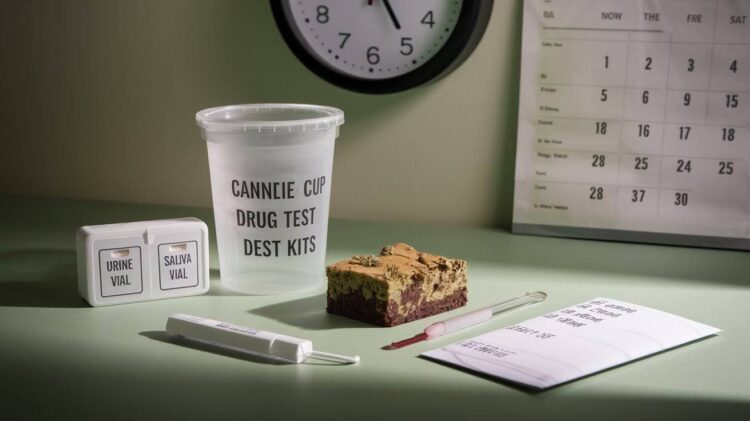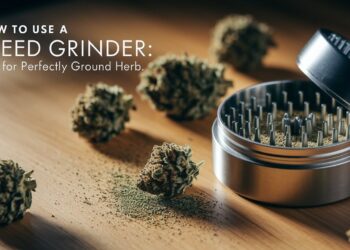If you’ve ever eaten a cannabis edible and wondered how long it stays in your system, you’re not alone. I’ve spoken with experienced users, read clinical research, and even tracked detection windows myself using at-home tests. Edibles affect everyone differently, but that doesn’t mean you have to guess.
Unlike smoking or vaping, edibles pass through your digestive system and liver before entering your bloodstream. This changes how long the effects last and how long THC remains detectable. Some people feel it for hours, while traces can stay in the body for days or even weeks.
In this article, we’ll explain how your body processes edibles and how long THC stays in your system. We’ll also cover detection times for blood, urine, saliva, and hair tests, all based on real science. Whether you’re facing a drug test or just curious, this guide gives you trusted, clear information to make smart choices.
What Are Edibles and How Do They Work?
Edibles are cannabis products you eat or drink. They come in many forms. Gummies, chocolates, cookies, and beverages are common options. When you consume an edible, something interesting happens.
Your body processes it completely differently from smoking.
How the Body Processes Edibles
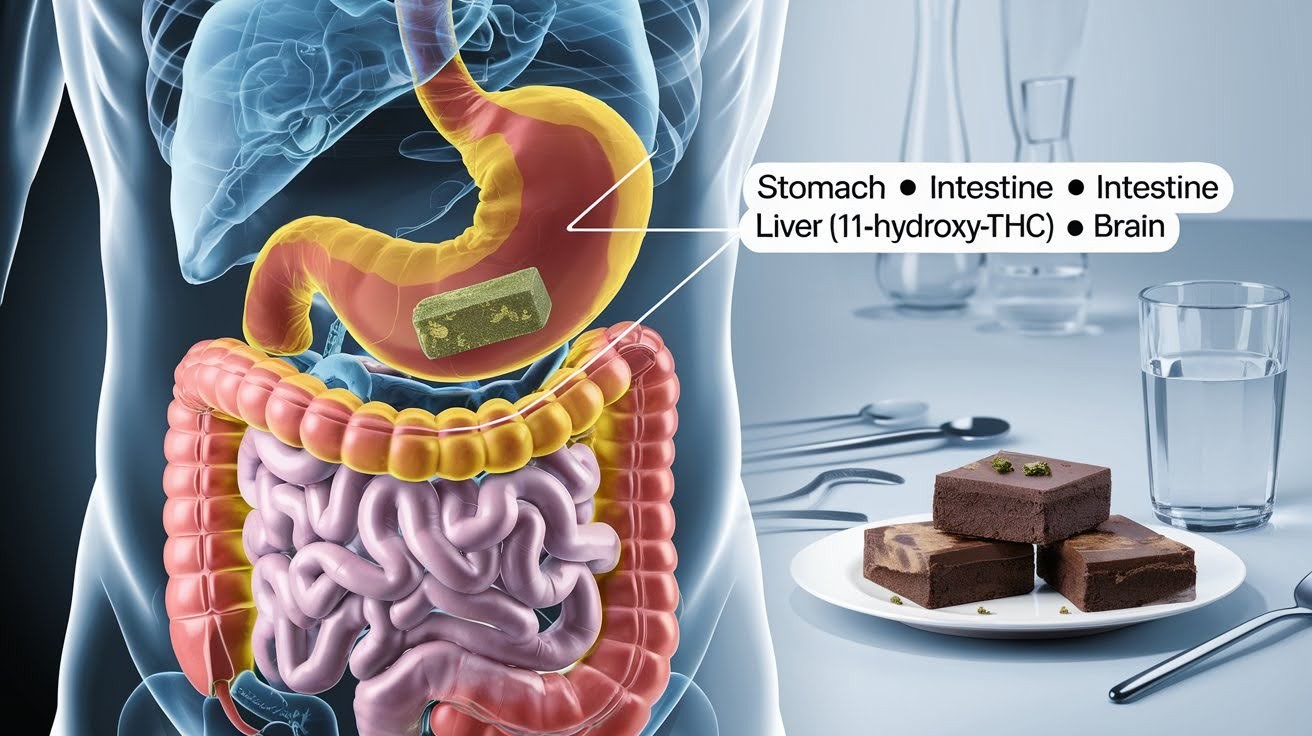
First, you swallow the edible. It travels down to your stomach. Then it moves into your small intestine. Here’s where things get technical.
Your small intestine absorbs the THC. This process takes time, usually 30 minutes to 2 hours. Next, your liver gets involved. This organ performs what scientists call “first-pass metabolism.” Your liver converts delta-9 THC into something new.
The result? 11-hydroxy-THC. This compound is more potent than regular THC. It crosses into your brain more easily. That’s why edibles feel stronger and last longer than smoking.
Think of it this way: Smoking delivers THC directly to your lungs. Then straight to your bloodstream. Edibles take the scenic route through your digestive system.
Your body eventually breaks down these compounds. Most leave through your urine over several days or weeks. The entire process is slow and steady. This explains why edible effects can last 4-8 hours or more.
Why Edibles Stay in the System Longer
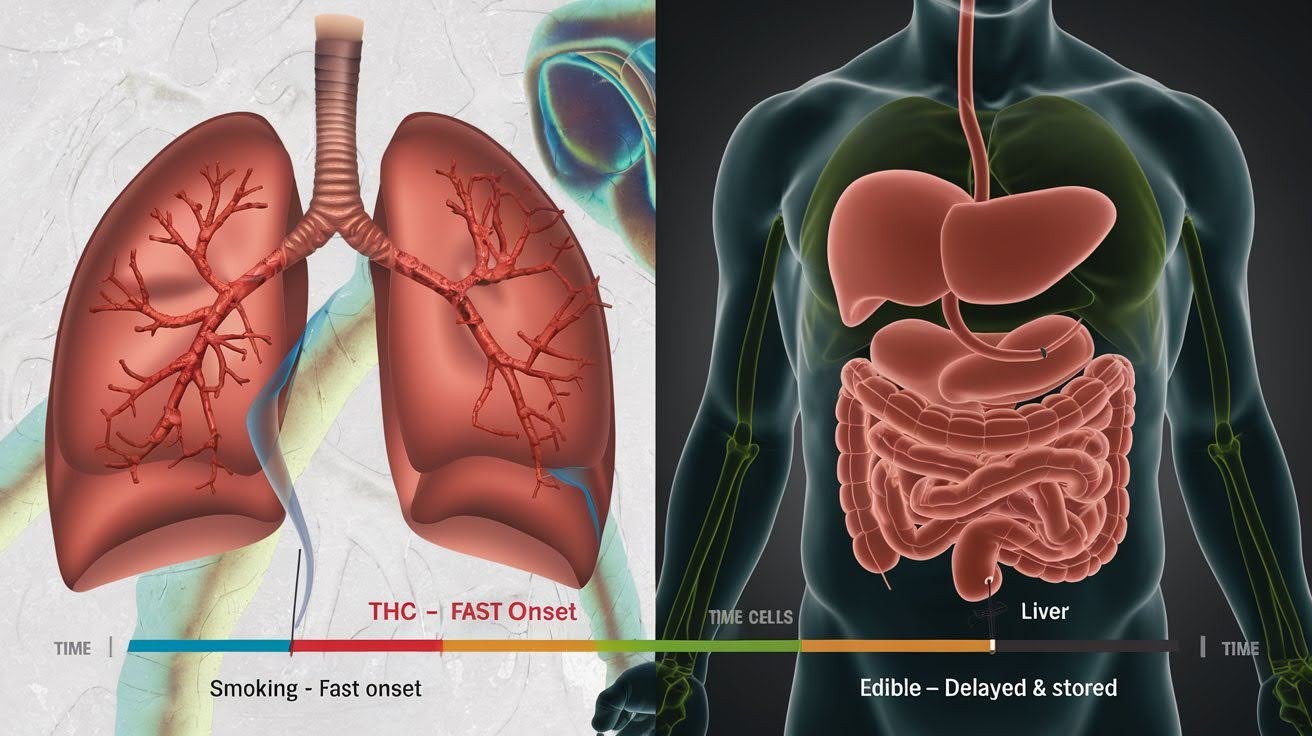
Your liver changes everything. When you eat cannabis, your liver creates 11-hydroxy-THC. This metabolite is stronger than regular THC. It also sticks around longer.
Smoking works differently. THC hits your lungs and bloodstream immediately. With edibles, your body releases compounds slowly over hours. Here’s the key factor: THC loves fat.
Your body stores these fat-soluble compounds in fat cells. They sit there for days or weeks. Slowly releasing back into your bloodstream.
The timeline tells the story:
- Smoking: Effects start in minutes
- Edibles: 30 minutes to 2 hours delay
This slow-release system means longer detection windows. Your body needs more time to clear everything out completely.
Detection Times in Different Drug Tests
Cannabis stays in your system longer than you might think. Here’s how long different drug tests can detect marijuana use.
Urine Tests (Most Common)
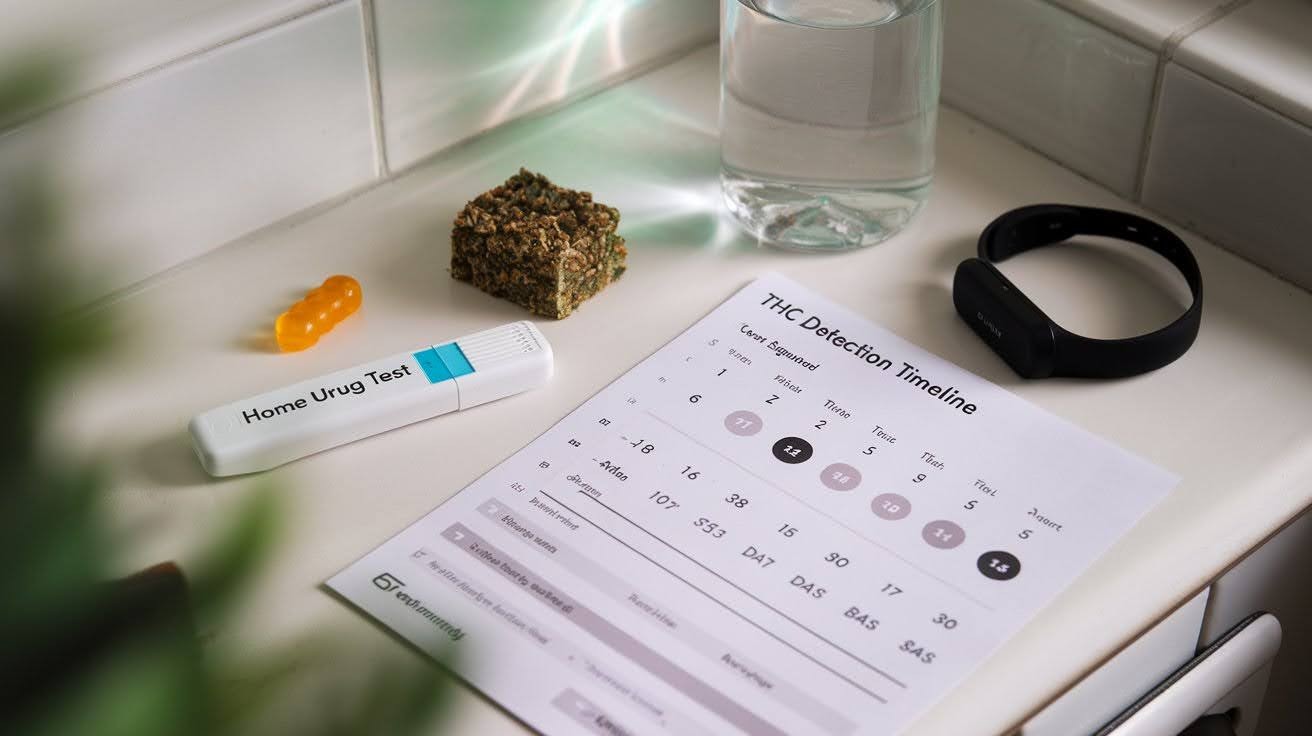
Urine tests are everywhere. Employers use them most often. They’re cheap and reliable.
But here’s what you need to know about timing.
Your usage pattern matters most. Light users clear THC faster than heavy users. Your body needs time to flush out stored compounds. Here’s the breakdown:
- Occasional users: 1-7 days after your last edible
- Moderate users (4 times weekly): 5-7 days
- Daily users: 10-15 days minimum
- Heavy users: 30 days or even longer
Why such a wide range? Your fat cells release THC slowly. If you use it frequently, more gets stored. Your body needs extra time to clear everything out.
The detection window spans 3-30 days total. This depends entirely on your consumption habits and body chemistry.
Blood Tests
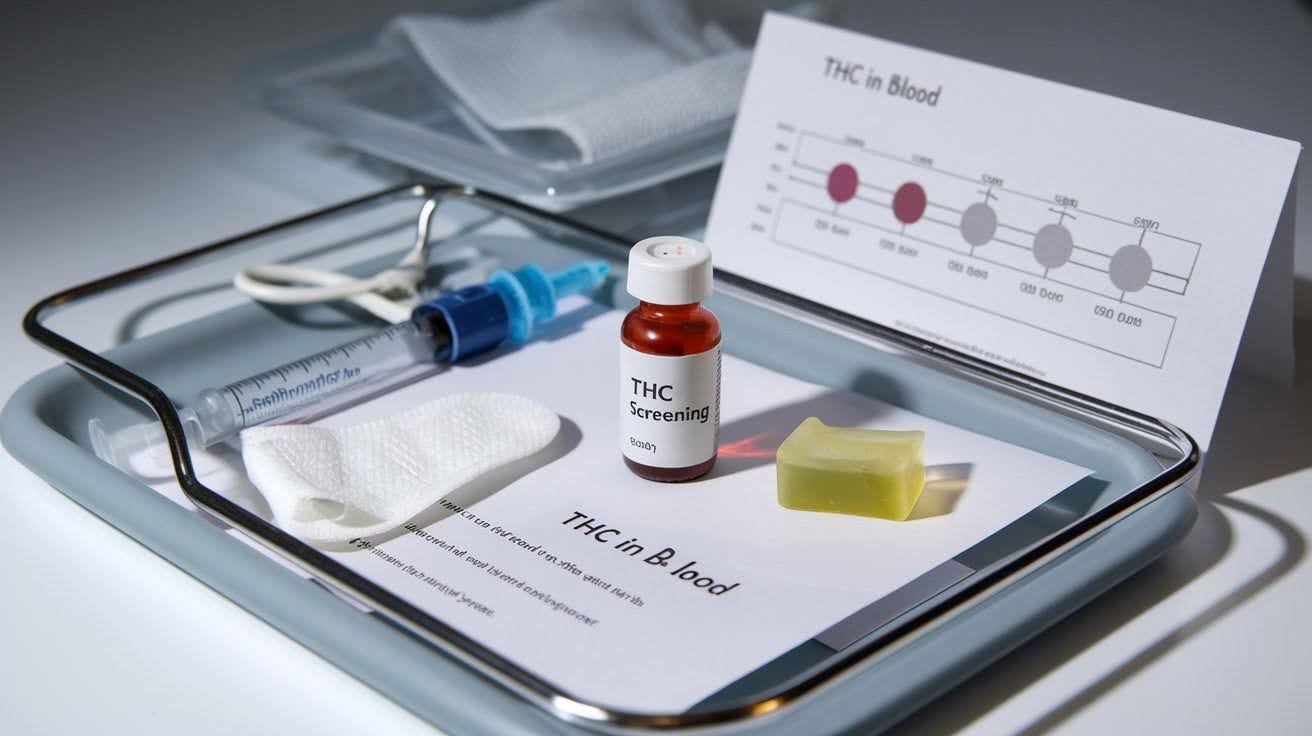
Blood tests show recent use. They catch THC while it’s still circulating in your system. Most people clear blood tests quickly:
- Occasional users: 1-2 days
- Chronic users: Up to 1 week maximum
The detection window runs 1-4 days for typical users. Blood tests don’t store THC like fat cells do.
Saliva Tests
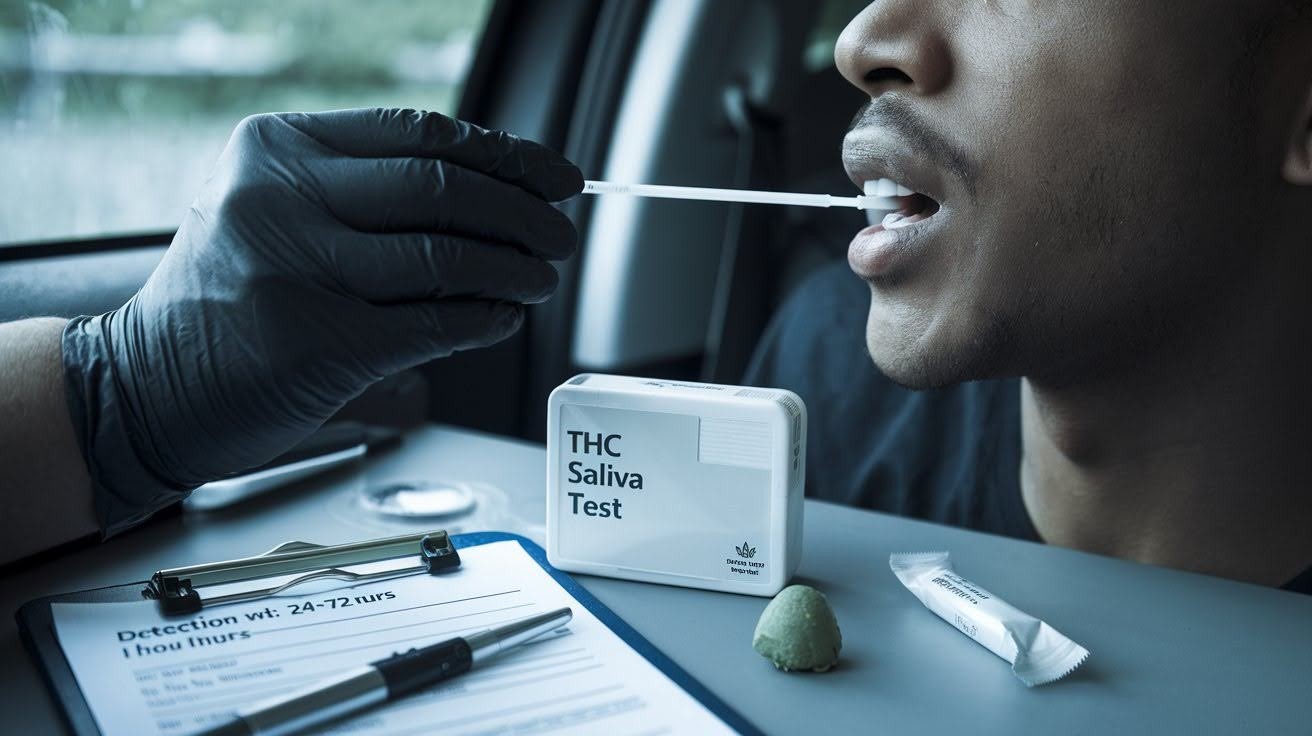
Saliva tests are getting popular. Police use them for roadside testing. Employers like them for workplace accidents. Timeline is short but important:
- Detection window: 1-3 days (24-72 hours)
- Purpose: Catching recent cannabis use
Your metabolism affects results. Higher doses stay longer. But saliva clears faster than urine.
Think of saliva as the “recent activity” test.
Hair Follicle Tests
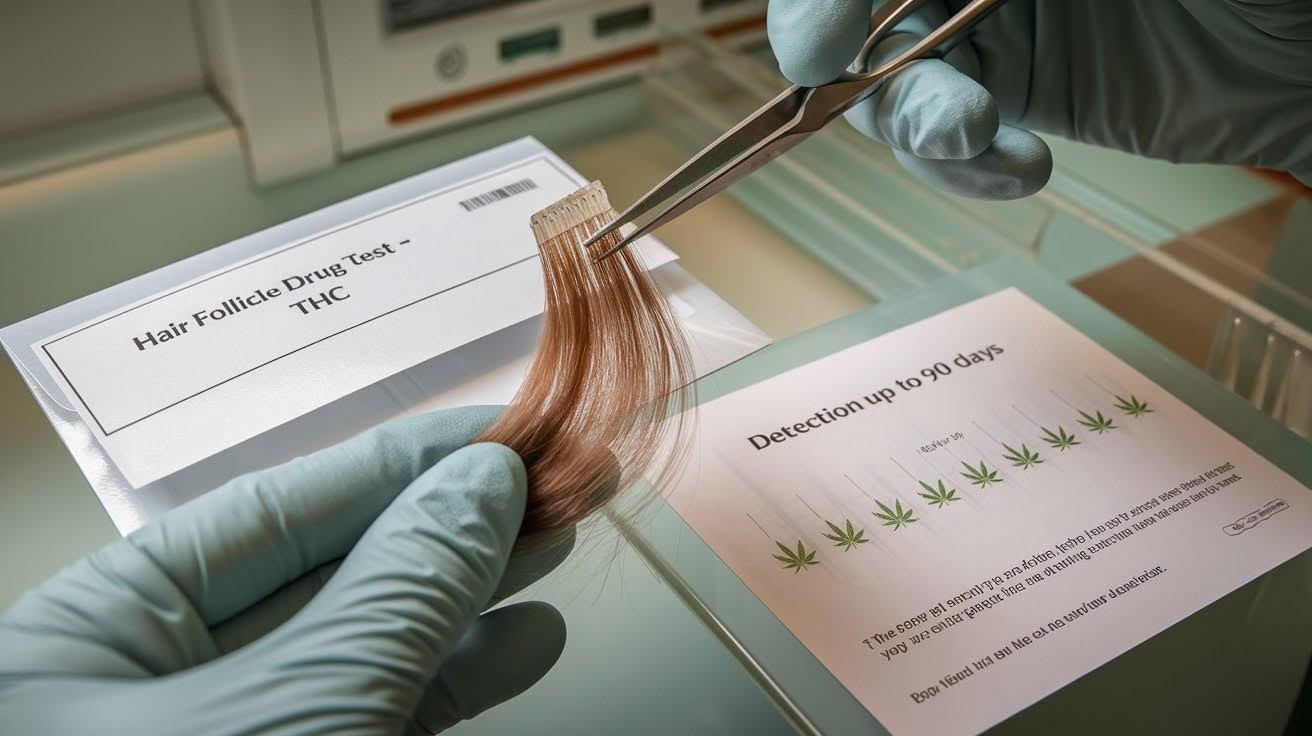
Hair tests are the marathon runners of drug testing. Here’s the scary truth: Up to 90 days of detection window. But there’s a catch. THC takes 7-10 days to show up in new hair growth. This creates a brief window where recent use won’t appear.
Hair tests catch patterns:
- Long-term use
- Heavy consumption habits
- Repeated edible use over months
Your hair becomes a timeline of your cannabis history. Each strand holds months of information about your usage.
Key Factors Affecting Detection Time
Several factors determine how long cannabis stays detectable in your body. Your usage habits and biology play major roles.
Dosage and Potency
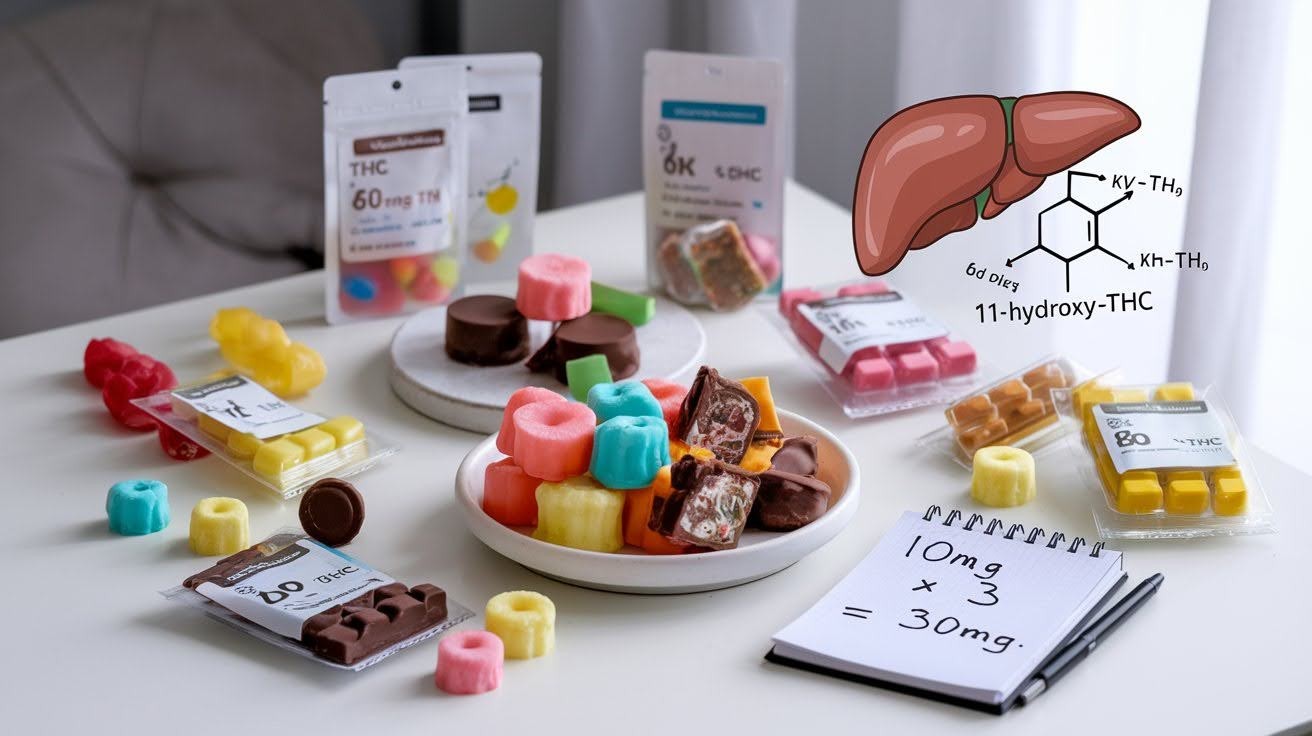
More THC means longer detection times. It’s that simple. Most edibles use 10mg THC as a standard serving. But many people don’t stop there. What happens when you take more?
Your liver works harder to process extra THC. Higher doses create more metabolites. These compounds take longer to clear from your system.
Multiple servings multiply the problem. Take three 10mg gummies? You’re processing 30mg total. Your body needs extra time to break down all that THC. The math is straightforward: Double the dose, expect longer detection times.
Frequency of Use

This factor matters most. Occasional users clear THC quickly. Their fat cells aren’t loaded with stored compounds. Regular users face a different reality.
THC builds up in your fat cells over time. Each use adds more to the storage pile. Your body can’t keep up with constant input. Here’s what happens with frequent use:
- THC accumulates faster than eliminated
- Fat cells become loaded storage units
- Detection windows stretch longer
- Tolerance changes how your body processes THC
Chronic users develop tolerance. Your metabolism adapts to regular THC exposure. This affects how long compounds stay detectable. Bottom line: Occasional use means shorter detection. Regular use means longer windows.
Individual Metabolism

Your metabolism is unique. Some people process THC faster than others. Age plays a big role. Younger people typically have faster metabolic rates.
Older adults may take longer to clear THC from their systems. Activity level matters too. Active people burn through compounds quicker. If you exercise regularly, your body processes THC faster.
Overall health affects everything. Healthy liver function speeds up THC breakdown. Poor health can slow the process. Think of metabolism as your body’s engine speed. Some run fast, others idle slowly.
Body Composition and Fat Percentage
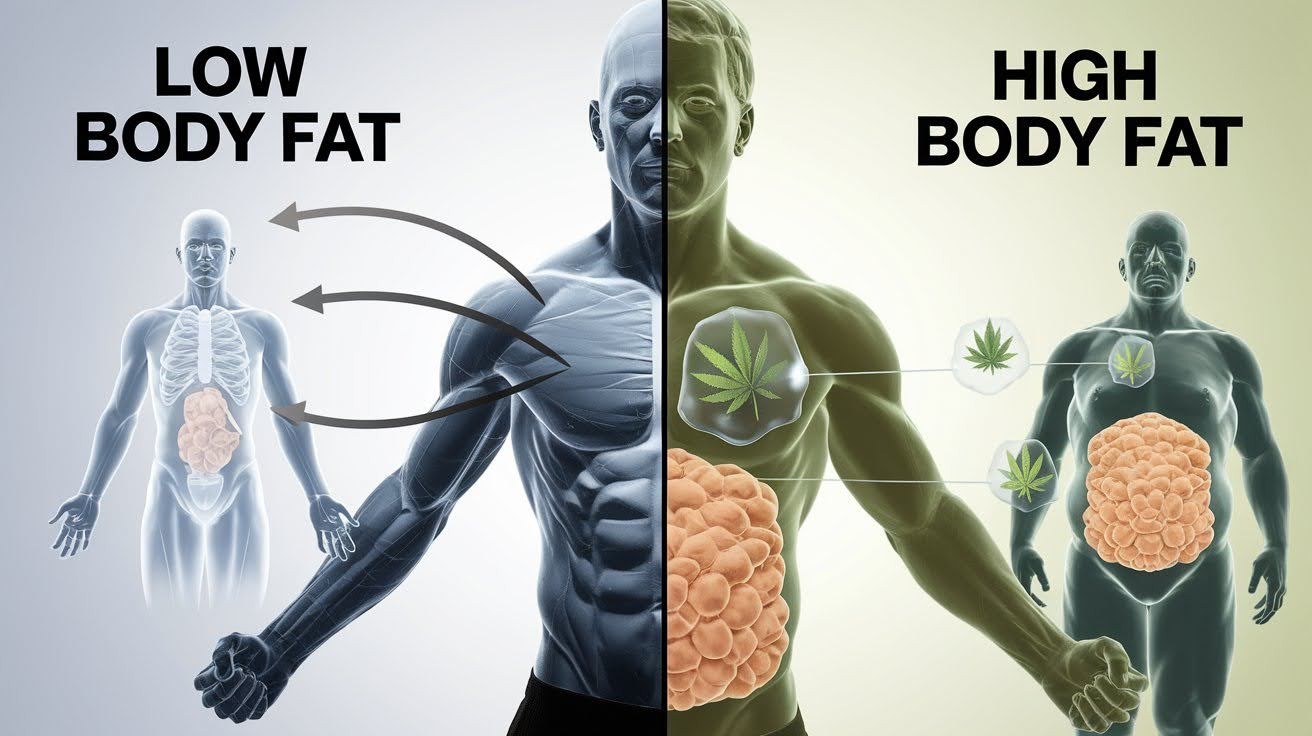
Here’s a crucial fact: THC loves fat cells. Scientists call THC “lipophilic.” This means it sticks to fat like glue. Higher body fat percentage equals longer retention times. More fat cells mean more storage space for THC metabolites.
People with lower BMI have advantages:
- Less fat storage available
- Faster THC processing
- Shorter detection windows
Your body composition directly impacts clearance time. Athletic builds typically clear THC faster than higher fat percentages.
Hydration and Lifestyle Factors
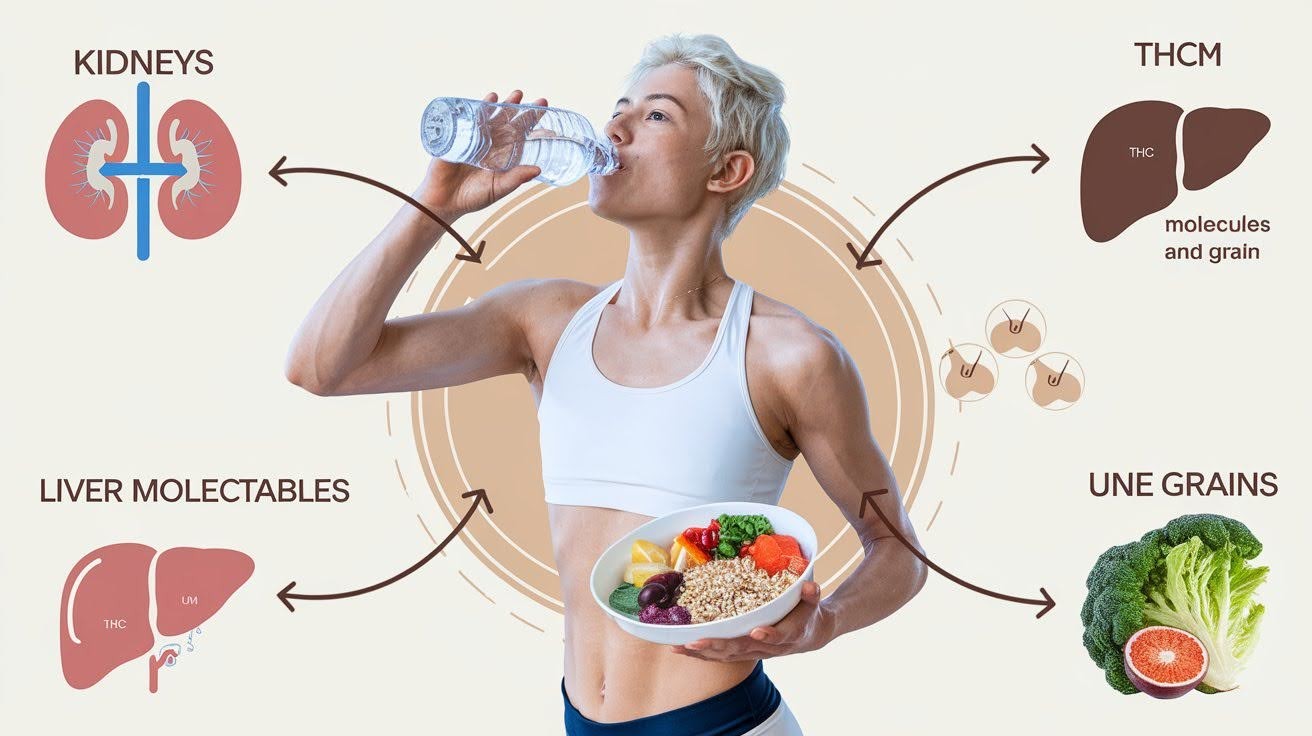
Water helps flush your system. Good hydration supports kidney function and urine production. But don’t expect miracles. Water alone won’t speed up fat cell release.
Exercise creates interesting effects. When you burn fat, stored THC gets released back into your bloodstream. This can temporarily increase detection levels. Your diet influences metabolism speed:
- Healthy foods support liver function
- Poor nutrition slows processing
- Balanced meals help maintain steady metabolic rates
Lifestyle choices compound over time. Healthy habits support faster THC elimination.
Methods to Potentially Reduce Detection Time
While time is the only guaranteed way to clear cannabis, some methods may help speed up the process.
Natural Approaches

Let’s be honest about what helps. Drinking more water supports your kidneys. Good hydration helps your body function better. But water won’t magically flush THC from fat cells.
Exercise burns fat cells. When you work out, your body releases stored THC back into your bloodstream. This might temporarily increase detection levels before helping long-term clearance.
Some people try natural diuretics:
- Cranberry juice
- Green tea
- Extra water intake
Fiber-rich foods support digestion. A healthy diet helps your liver work efficiently. Think vegetables, fruits, and whole grains. But here’s the truth you need to hear.
Time is your most reliable ally. Your body needs days or weeks to naturally clear THC metabolites. No shortcuts exist.
Why Most “Quick Fix” Methods Don’t Work
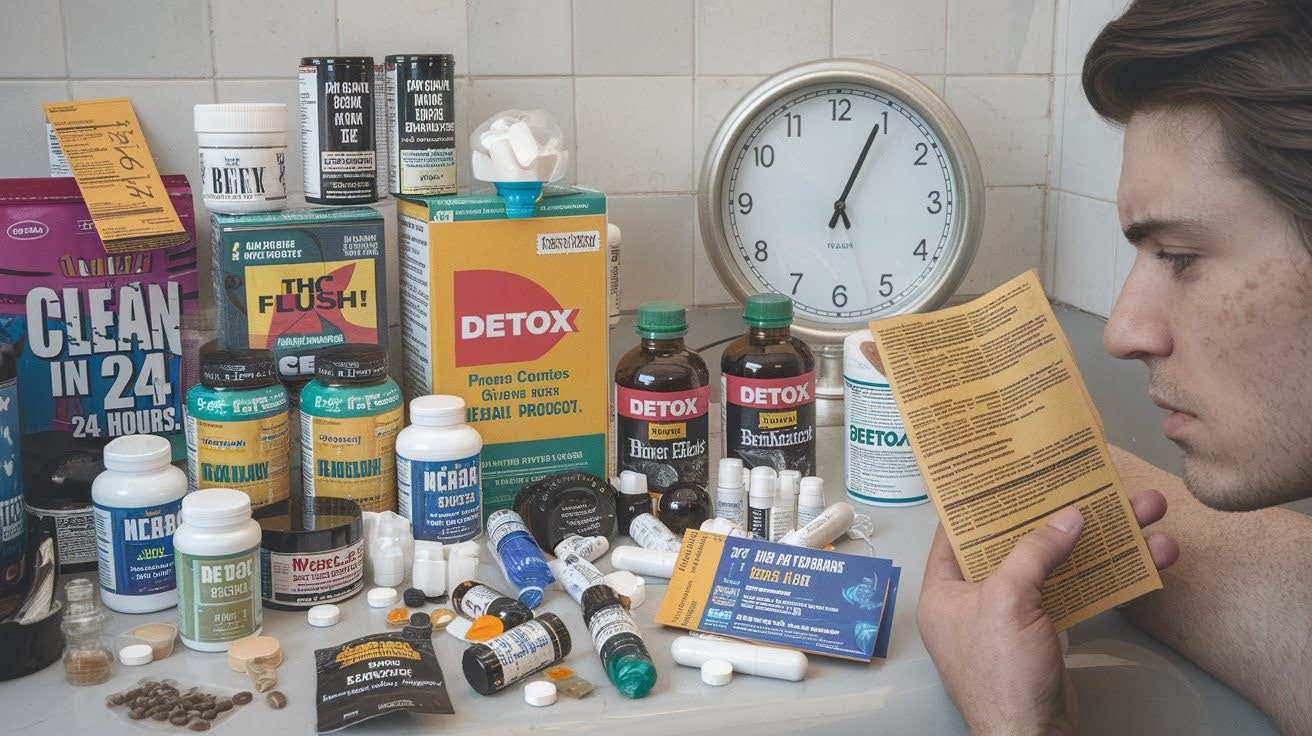
The internet is full of false promises. Detox drinks, special pills, and “cleansing” products make big claims. Scientific evidence doesn’t support these methods. Your body clears THC at its own pace.
No product can speed up this natural process significantly. Time remains the only proven method for complete THC elimination. Everything else is marketing hype designed to take your money. Save yourself the disappointment. Plan and allow proper time for natural clearance.
Conclusion
Now you know exactly how long edibles stay in your system. The answer depends on your usage patterns, body composition, and metabolism. Most people can expect detection windows from 3-30 days in urine tests, with shorter times for blood and saliva.
Your questions about edible detection times are answered. You understand why these compounds stick around longer than smoking. You also know which factors affect your timeline.
Remember: Time is your best friend for natural clearance.
Quick fixes don’t work, but healthy habits can support your body’s natural processes. Found this guide helpful? Share it with friends who have similar questions. Have your own experiences or additional questions?
Leave a comment below. Your insights help others in the same situation. Stay informed and make smart choices.
Frequently Asked Questions
How long does edible stay in your system for a urine test?
Edibles can be detected in urine for 3-30 days, depending on usage frequency. Occasional users: 1-7 days, moderate users: 5-7 days, daily users: 10-15 days, and heavy users: 30+ days.
Why do edibles stay in your system longer than smoking?
Your liver converts edibles into 11-hydroxy-THC, a more potent compound that stores in fat cells. This slow-release process takes longer to clear compared to smoking’s direct bloodstream delivery.
How long do edibles stay detectable in blood tests?
Blood tests typically detect edibles for 1-4 days. Occasional users clear within 1-2 days, while chronic users may test positive for up to one week.
Can drinking water help flush edibles from your system faster?
Water supports kidney function and hydration, but won’t speed up THC elimination from fat cells. Time remains the only reliable method for complete clearance from your system.
How long do edibles show up in hair follicle tests?
Hair tests can detect edibles for up to 90 days. However, THC takes 7-10 days to appear in new hair growth, creating a brief window where recent use won’t show.

